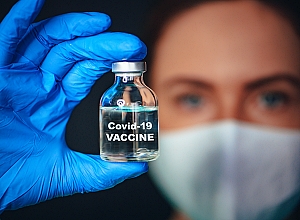Medical scientists are struggling to pin down the reasons for the surprisingly high number of vaccinated people who are getting breakthrough COVID-19 infections, writes Bloomberg.
Anecdotes tell us what the data canʼt: vaccinated people appear to be getting the coronavirus at a surprisingly high rate. But exactly how often isnʼt clear. Nor is it certain how likely they are to spread the virus to others. And now thereʼs growing concern that vaccinated people may be more vulnerable to serious illness than previously thought.
Thereʼs a dearth of scientific studies with concrete answers, leaving public policymakers and corporate executives to formulate plans based on fragmented information. While some are renewing mask mandates or delaying office re-openings, others cite the lack of clarity to justify staying the course.
“We have to be humble about what we do know and what we donʼt know,” said Tom Frieden, a former director of the US Centers for Disease Control and Prevention (CDC) and the head of non-profit Resolve to Save Lives.
Just how vulnerable they are is a key variable not just for public health officials trying to figure out, say, when booster shots might be needed, but also to inform decisions about whether to roll back re-openings amid a new wave of the virus.
In lieu of answers, what has emerged is a host of case studies providing somewhat different pictures of breakthrough infections. Variables, including when the surveys were conducted, whether the Delta variant was present, how much of the population was vaccinated and even what the weather was like at the time make it hard to compare results and suss out patterns.
One of the best known outbreaks among vaccinated people occurred in the small beach town of Provincetown, Massachusetts, as thousands of vaccinated and unvaccinated gathered on dance floors and at house parties over the 4 July weekend to celebrate the holiday — and what seemed like a turning point in the pandemic. About three quarters of the 469 infections were among vaccinated people.
Authors of a CDC case study said this might mean they were just as likely to transmit COVID-19 as the unvaccinated. Even so, they cautioned, as more people are vaccinated, itʼs natural they would also account for a larger share of COVID-19 infections and this one study was not sufficient to draw any conclusions. The incident prompted the CDC to reverse a recommendation it had issued just a few weeks earlier and again urge the vaccinated to mask up in certain settings.
Still, the particular details of that cluster of cases may have made that outbreak especially bad, according to aid Monica Gandhi, an infectious disease expert at the University of California, San Francisco. . “The rate of mild symptomatic outbreaks in this population was higher because of a lot of indoor activity (including sex), rain that weekend, not much outside time and a mixture of people with different vaccination status,” she said.
A newly released, far larger CDC case study of infections in New York state, meanwhile, found the number of breakthrough infections has steadily ticked up since May, accounting for almost 4% of cases by mid-July. From 1 May 2021, the CDC stopped monitoring vaccine breakthrough cases unless they resulted in hospitalisation or death.
Yet another CDC case study, in Colorado, found the breakthrough infection rate in one county, Mesa, was significantly higher than the rest of the state, at 7% versus about 5%. The report suggested it was perhaps because the Delta variant was circulating more widely there, but also noted the ages of patients in Mesa and the lower vaccination rate may have played a role.
Research out of Israel, with its high vaccination rates, seems to back the idea that protection from severe disease wanes in the months after inoculation and, more recently, that breakthrough cases may eventually lead to an uptick in hospitalisations. The information is preliminary and severe breakthrough cases are still rare, but it bolsters the case that some people will need booster shots in coming months.
Case studies and data from some states in the US have similarly shown an increase in breakthrough cases over time. But with the Delta variant also on the rise, itʼs difficult to tell whether waning immunity to any type of coronavirus infection is to blame or if the vaccinations are particularly ineffective against the Delta variant. It could be both.
Some facts are well established at this point. Vaccinated people infected with the virus are much less likely to need to go to hospital, require intubation or die from the illness. Thereʼs no doubt that vaccines provide significant protection.
Bloomberg article – The Vaccinated Are Worried and Scientists Don’t Have Answers (Open access)
See more from MedicalBrief archives:
COVID-19 reinfection twice as likely in the unvaccinated — CDC study
CDC warns: Delta more transmissible than Ebola, as contagious as chickenpox
Pfizer and Moderna cut COVID-19 infection risk by 91% in the fully vaccinated
Delta variant: Not just hyper-contagious but also multiplies more rapidly inside respiratory tract
COVID-19 breakthrough infections in vaccinated healthcare workers – Israel cohort study
Pfizer and Moderna cut COVID-19 infection risk by 91% in the fully vaccinated
COVID-19 antibodies persist at least nine months after infection — Assay tests in Italy
'Sobering' findings on natural protection against COVID-19 reinfection

